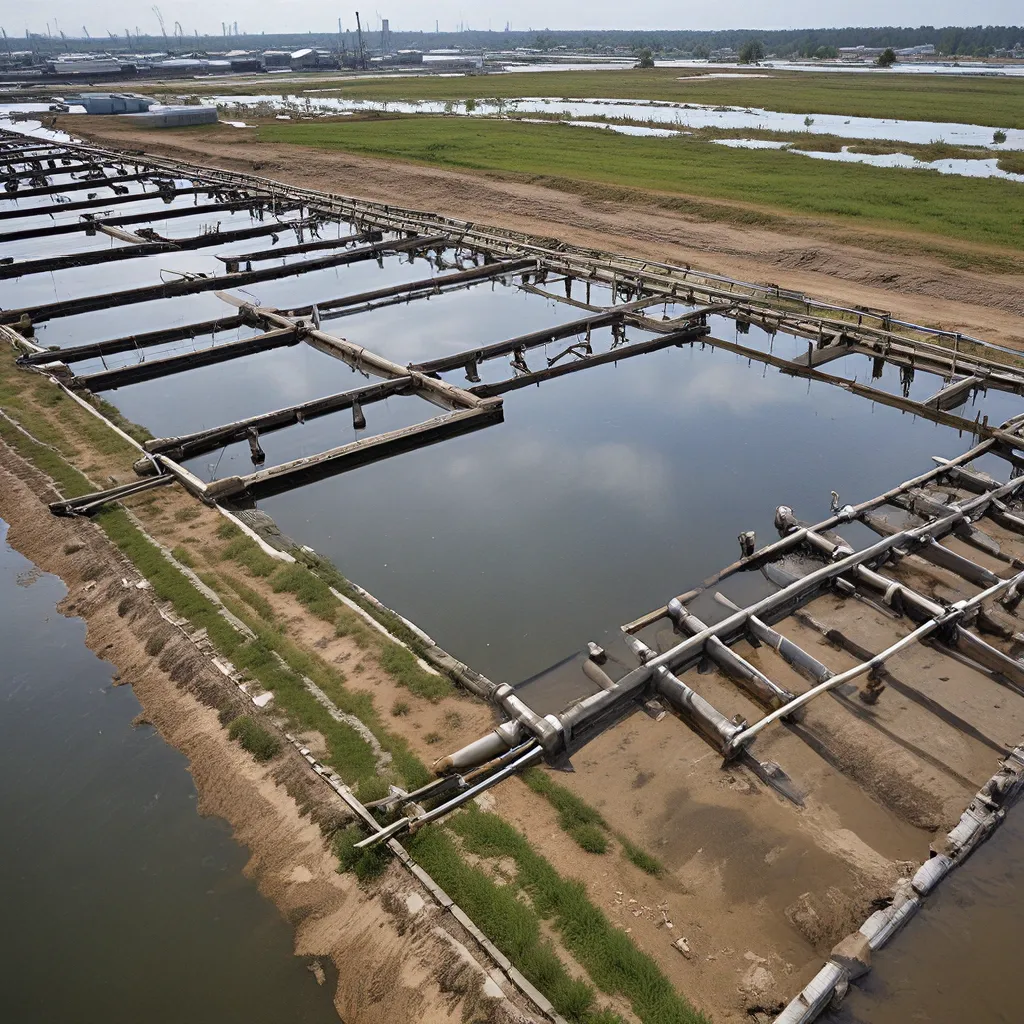
As the world grapples with the realities of climate change, one of the most critical challenges we face is ensuring the resilience of our wastewater treatment infrastructure. In an era of more frequent and intense storms, droughts, and other extreme weather events, the ability of our wastewater systems to adapt and continue providing essential services is paramount.
Confronting the Climate Change Conundrum
The science is clear: climate change is here, and its effects are only going to become more pronounced in the years and decades to come. From rising sea levels to shifting precipitation patterns, the implications for our water infrastructure are far-reaching and potentially devastating.
Consider the situation in New Jersey, a state on the front lines of the battle against climate change. According to the New Jersey Department of Environmental Protection’s Draft Climate Change Resilience Strategy, the state’s drinking water, wastewater, and stormwater infrastructure are all at risk. Saltwater intrusion, drought, and more intense storms could damage aging infrastructure, compromise water quality, and overwhelm outdated treatment systems.
It’s a troubling scenario, but one that’s not unique to New Jersey. Across the country, communities are grappling with the need to adapt their wastewater treatment systems to the realities of a changing climate.
Adapting for an Uncertain Future
So, what can we do to ensure the resilience of our wastewater infrastructure in the face of these challenges? The key, it seems, lies in a multifaceted approach that combines smart planning, innovative technologies, and a commitment to sustainability.
Strengthening Infrastructure
One of the most critical steps is investing in the repair and modernization of our aging wastewater treatment facilities. Many of these systems were built decades ago, with designs and standards that simply cannot keep up with the demands of the present day, let alone the future.
As the New Jersey Future report highlights, this means addressing issues like saltwater intrusion, increased nonpoint source pollution, and the growing risk of combined sewer overflows (CSOs) – a problem that can have serious public health consequences.
By upgrading treatment plants, building new water storage facilities, and exploring the relocation of infrastructure to more resilient locations, we can help ensure that our wastewater systems are better equipped to withstand the ravages of climate change.
Embracing Green Infrastructure
But it’s not just about hardening our grey infrastructure – the pipes, pumps, and treatment plants that have long been the backbone of our wastewater management. Green infrastructure can also play a vital role in building climate resilience.
As the City of Portland’s Water Bureau has demonstrated, practices like bioswales, permeable pavement, and urban forests can help manage stormwater runoff, improve water quality, and reduce the strain on traditional wastewater systems.
By incorporating green infrastructure into our urban planning and design, we can create more livable, sustainable communities that are better equipped to handle the challenges posed by climate change.
Fostering Collaboration and Innovation
Of course, adapting our wastewater treatment systems to the realities of climate change is no easy task. It will require a concerted effort on the part of policymakers, utility leaders, scientists, and the public.
As research has shown, this means fostering collaboration between water utilities, research institutions, and climate experts to better understand the risks and develop innovative solutions.
It also means embracing a culture of continuous improvement and adaptation, where we’re constantly evaluating the performance of our wastewater systems, incorporating the latest data and research, and making the necessary adjustments to ensure their resilience.
Wastewater Treatment in the Age of Climate Change
As the world continues to grapple with the effects of climate change, the importance of resilient wastewater treatment systems cannot be overstated. From coastal communities facing the threat of sea level rise to inland regions dealing with more frequent and intense storms, the challenges are daunting.
But with a combination of strategic investments, innovative green infrastructure, and a collaborative, adaptive approach, I believe we can rise to the occasion. By future-proofing our wastewater systems, we can not only protect public health and the environment but also build the foundations for more sustainable, livable communities.
It’s a tall order, to be sure, but one that’s absolutely essential if we’re to navigate the uncertain waters of the years to come. And as the team at Alpha Wastewater can attest, the challenges are surmountable with the right expertise, resources, and commitment to excellence.
So let’s roll up our sleeves and get to work. The future of our water infrastructure – and the wellbeing of our communities – depends on it.